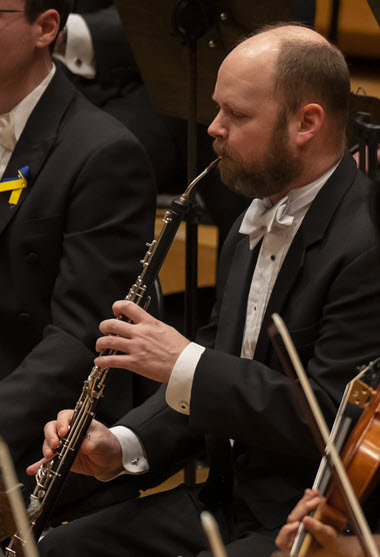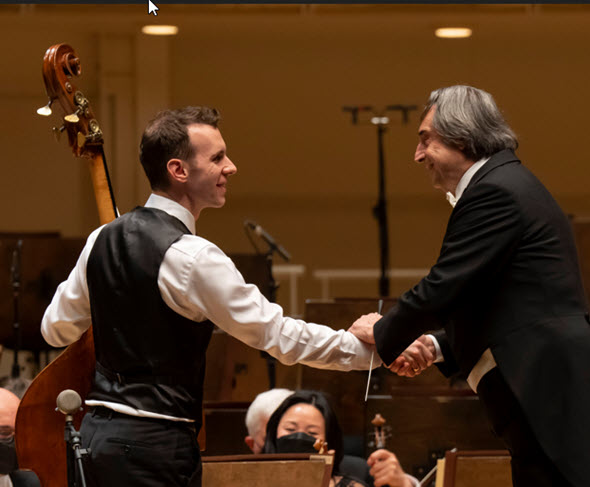Muti spotlights Black composers, historical
and contemporary, in pair of CSO programs

CSO concerts April 28 and May 5 turned the spotlight on Black composers, from left, Florence Price, William Grant Still and Jessie Montgomery.
Commentary: Music director Riccardo Muti showcased the mastery of Florence price, William Grant Still and Jessie Montgomery.
By Lawrence B. Johnson
Riccardo Muti’s penultimate podium stint with the Chicago Symphony Orchestra for this season produced a stirring testimonial to the place of Black composers in the overdue reordering of life in America’s concert halls. On view was the work of three impressive artists: the historical figures Florence Price and William Grant Still and the CSO’s masterful composer in residence, Jessie Montgomery.
Concert audiences have come to know Price mainly through her Symphony No. 1 in E minor, famously performed by the Chicago Symphony under Frederick Stock at the 1933 World’s Fair. While a well-made and appealing work, the First Symphony resonantly echoes Dvořák (even to the key of E minor, the same as the “New World” Symphony). But Muti brought a more telling perspective to Price, the composer at a later stage, in the full maturity of her engagement with symphonic form: the Symphony No. 3 in C minor (1940), a distinctly and boldly American essay that draws creatively and transformatively on Black culture and its musical traditions – much the way Bartók translated Hungarian folksong to high art.

Common to the two programs led by Muti was the music of Black American composers and Beethoven. (Concert photos by Todd Rosenberg)
The Third Symphony, an eloquent, personal and surprising work in four movements, leaves Dvořák behind, or rather it ventures down exactly the path the Czech composer urged upon American composers at the turning of the 20th century: it takes as its point of departure the music of America’s own soil, in this case the legacy of Black music dating back to slavery.
Actually, Price’s Third Symphony commences in the tradition of Haydn, with an extended slow, ruminative introduction that gives way to extroverted music of jubilee. The Italian Muti, ever the perceptive musician, precisely caught the spiritual esprit of that opening movement and carried it through a radiant — and adroitly orchestrated — Andante of infectious lyrical grace. The third movement, buoyant “juba” household music from the old South that even crops up in August Wilson’s plays about the African American experience, must have given Price great pleasure to write. Muti made even that cultural leap with disarming aplomb, and the Chicago Symphony responded with a combination of unbuttoned elan and heady virtuosity. The work’s finale commingles Black spirituals with touches of jazz in a bravura orchestral setting that perhaps only hints at what Price might have achieved with greater encouragement, in a more accepting time.
As preface to Price’s symphony, the program I heard May 5 offered William Grant Still’s “Mother and Child” (1943), the composer’s own arrangement for strings of a movement from his suite for violin and piano. Samuel Barber’s famous Adagio, in its arrangement for strings from his Second String Quartet, might come immediately to mind. But the textural amplitude and sheer expressive intensity of Still’s music sets it apart. What the two works notably share is a sustained arching lyricism. The CSO strings delivered Still’s ardent song with full-throated fervor.

English horn player Scott Hostetler added to the swelling splendor of Jessie Montgomery’s “Hymn for Everyone.”
The week before, on April 28, Muti led the world premiere of “Hymn for Everyone” by CSO composer in residence Jessie Montgomery. It would prove to be a poetic companion piece to Still’s “Mother and Child.” Indeed, Montgomery’s eloquent single-movement work brought nothing else to mind so compellingly as Aaron Copland in the 1940s, at his most solicitous and communal. “Hymn for Everyone” swells gently but irrepressibly from a quiet statement by French horn and violas through the addition of English horn to a steady deepening and enrichment of colors and textures that ultimately envelops the full orchestra. Muti led a lustrous performance that left this listener wishing only to begin the journey again.
Common to the two concerts on May 5 and April 28 was Beethoven, in the earlier instance a ravishing account of the Symphony No. 6 in F (“Pastoral”). Here was Muti as master of detail and hue and expressive inflection — with the Chicago Symphony at its nearly unrivaled peak capacity for coloristic nuance and rhythmic propulsion. The slow movement (“By the Brook”) evoked a veritable dream state, even as the scherzo evoked a graphic depiction of country folk in merry dance, suddenly chased away by a fearsome storm. Not hard to see where Berlioz found the seed and model for his “Symphonie fantastique.”
The Beethoven component on May 5 was doubly fascinating – the nearly orphaned Fourth Symphony and the heroic “Egmont” Overture. Schumann once characterized the Fourth Symphony as a Greek maiden between two Norse giants, the “Eroica” and the Fifth. It’s an elusive piece, the Fourth, a bumptious sort of helter-skelter comedy punctuated by some of the most sublime music Beethoven ever penned.
Where the Eighth Symphony is all sly wit in the vein of Haydn, the Fourth is more like rustic humor with lyrical digressions. Credit Muti with giving both elements their due, and the orchestra with turning it into a rollicking good time. “Egmont,” written later but performed here just before the Fourth Symphony, is Beethoven at his most patrician, grand and serious. This was a glorious account, stentorian and majestic.

CSO principal bass Alexander Hanna, the soloist in a Bottesini concerto, is congratulated by CSO music director Riccardo Muti.
The outlier in these two weeks was Bottesini’s Concerto No. 2 for Double Bass and Orchestra, heard May 5. A charming curiosity, this 19th-century flight of fancy for the big ol’ bullfrog gave CSO principal bass Alexander Hanna an opportunity to bring his hefty friend to center stage. Who knew the bass could play the siren singer? Hanna gave fine, effortless voice to Bottesini’s delicate lines. I’m sure I was like everyone else in that appreciative audience: mildly astonished and completely won over.

